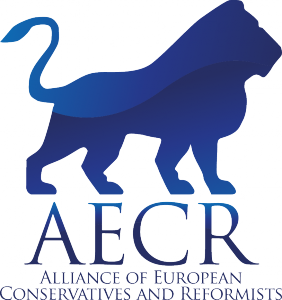 Hannes Hólmsteinn Gissurarson prófessor heldur erindi um bankahrunið íslenska á morgunverðarfundi, sem sænska hugveitan Timbro efnir til í Stokkhólmi þriðjudaginn 29. október. Fyrirlestur hans verður fluttur á ensku og nefnist „Why Was Iceland Left Out in the Cold?“ Hann er þáttur í samstarfsverkefni RNH og AECR, Evrópusamtaka íhaldsmanna og umbótasinna, „Europe, Iceland and the Future of Capitalism“.
Hannes Hólmsteinn Gissurarson prófessor heldur erindi um bankahrunið íslenska á morgunverðarfundi, sem sænska hugveitan Timbro efnir til í Stokkhólmi þriðjudaginn 29. október. Fyrirlestur hans verður fluttur á ensku og nefnist „Why Was Iceland Left Out in the Cold?“ Hann er þáttur í samstarfsverkefni RNH og AECR, Evrópusamtaka íhaldsmanna og umbótasinna, „Europe, Iceland and the Future of Capitalism“.
Í útdrætti úr fyrirlestrinum segir: „As described in the famous dialogue between the Athenians and the Melians, international politics has often meant the rule of the strong over the weak. Here, a modern example will be considered, that of Iceland in the 2007–2009 international financial crisis. In September 2008, the American Fed announced currency swap agreements with the Swedish, Danish and Norwegian central banks, essentially issuing a license to those banks to print dollars. The request of Iceland’s Central Bank to be included was rejected. In October 2008, the British Labour government closed down the two Icelandic-owned banks in England, on the same day that it announced an immense rescue package for all other banks in England. Moreover, the British government used an anti-terrorism law to freeze the assets of one of the Icelandic banks, briefly even putting the Icelandic Central Bank and the Ministry of Finance on a list of terrorist organisations, alongside the Al-Qaida and the Talibans. What explains the refusal of the American Fed to include Iceland? Was the foreseeable collapse of its banks meant to be an elimination of unwelcome competition in European financial markets, as well as a lesson and a warning? Was the British Labour government under pressure from Labour-controlled municipalities which had deposited large sums of money in accounts in the Icelandic banks? Was the ferocity of the British response to the Icelandic crisis because the British authorities expected the Icelandic banks to behave like Lehman Brothers which had transferred enormous amounts of money to the US just before its collapse? Most importantly, what does this example tell us about the rules really applying in international affairs, in a dispute between the strong and the weak, an Athens and a Melos, in the midst of a grave crisis?“
 Einnig heldur Urban Bäckström, sem var seðlabankastjóri Svíþjóðar 1994–2002 og er nú framkvæmdastjóri Samtaka atvinnulífsins í Svíþjóð, erindi. Bäckström er hagfræðingur að menntun. Hann var deildarstjóri í sænska viðskiptaráðuneytinu, síðan hagfræðingur Hófsama framfaraflokksins, eftir það Samtaka fjárfesta í Svíþjóðar og þá ráðuneytisstjóri í sænska fjármálaráðuneytinu í miðri fjármálakreppunni í Svíþjóð á öndverðum tíunda áratug 20. aldar. Þegar Bäckström var seðlabankastjóri, varð hann að bregðast við fjármálakreppunni í Asíu, sem hafði nokkur áhrif í Svíþjóð. Hann var um tveggja ára skeið forstjóri líftryggingafélagsins Skandia, en Kaupþing og Burðarás áttu þá hlut í því fyrirtæki.
Einnig heldur Urban Bäckström, sem var seðlabankastjóri Svíþjóðar 1994–2002 og er nú framkvæmdastjóri Samtaka atvinnulífsins í Svíþjóð, erindi. Bäckström er hagfræðingur að menntun. Hann var deildarstjóri í sænska viðskiptaráðuneytinu, síðan hagfræðingur Hófsama framfaraflokksins, eftir það Samtaka fjárfesta í Svíþjóðar og þá ráðuneytisstjóri í sænska fjármálaráðuneytinu í miðri fjármálakreppunni í Svíþjóð á öndverðum tíunda áratug 20. aldar. Þegar Bäckström var seðlabankastjóri, varð hann að bregðast við fjármálakreppunni í Asíu, sem hafði nokkur áhrif í Svíþjóð. Hann var um tveggja ára skeið forstjóri líftryggingafélagsins Skandia, en Kaupþing og Burðarás áttu þá hlut í því fyrirtæki.


